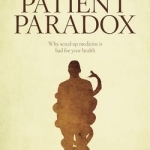Purple Phoenix Games (2266 KP) rated Canvas in Tabletop Games
Feb 3, 2021
Canvas is a game of card drafting and set collection in which players are trying to layer their cards to create unique pieces of artwork that will earn them Ribbons (VP) at the local art festival. To begin, set up the canvas mat, 4 random Scoring Cards, Ribbon tokens, and Art cards in their corresponding locations in the play area. Each player receives 3 sleeved Background cards and 4 Inspiration tokens. Select a starting player, and the game is ready to begin!
Playing over a series of rounds, players will take turns either Taking an Art Card or Completing a Painting. If you choose to Take an Art Card, you select an Art Card from the canvas mat and take it into your hand. The card furthest from the draw deck is free, but subsequent cards must be ‘purchased’ by spending Inspiration. Place 1 Inspiration token on every card preceding the one you take into hand. If you select an Art Card that has an Inspiration token on it, you collect that token for future use!
If you have at least 3 Art Cards, or a maximum of 5 Art Cards in hand, you must Complete a Painting. You will select 3 of your Art Cards to be sleeved with one of your starting Background cards. You may layer the Art Cards in any order you choose – but remember, only visible icons are used for scoring! Once you have Completed a Painting, you immediately score that piece. Compare the visible icons on your final painting to the Scoring Cards, taking any corresponding Ribbon tokens for successfully meeting their requirements. Play continues in this manner until all players have completed their 3 paintings. Players count up their cumulative scores from all paintings, and the player with the most points is the winner!
The gameplay seems simple enough, right? Yes! It is very straightforward since you only have 2 options for each turn. Either draft a card, or complete a painting. Teaching time is minimal and the gameplay can move quickly. But THAT is where the simplicity ends, my friends. The heart of Canvas is in its strategy. Each game has 4 random Scoring Cards, which define how you will earn points. And each transparent Art Card has a number of icons at the bottom that will affect how you resolve each Scoring Card. By layering your Art Cards, you will cover some icons, while letting others remain visible. The possibilities are truly endless when it comes to how to layer your cards, but are you clever enough to layer them for maximum points? Admittedly, the various layering possibilities coupled with 4 different Scoring Cards can lead to some analysis paralysis, as players try to figure out every combination they have to see what could earn the most points. But all in all, I have found the that the gameplay is never really at a standstill, because as one player is taking their turn, all others can be strategizing with their own cards.
Let’s talk about components. First off, I love the canvas mat – it really brings the theme to life and is good quality! The Art Cards are colorful and sturdy, and they really are clear enough to see even when layered upon each other. (I should say that I did remove the plastic film from the manufacturing process.) The Scoring and Background cards are nice, big, and easy to read and understand. My deluxe copy of Canvas has Wooden Ribbons and Inspiration tokens instead of the standard cardboard, and they are nice, chunky, and fun to play with. There are even 5 small wooden easels on which players can display their masterpieces! All in all, the deluxe components are great quality and really elevate the gameplay. AND the game box literally has a hole in the back so it can be hung on the wall, like a real piece of art! Such a creative and immersive approach to the game, that just puts a smile on my face.
If you’ve read this far in my review, I think you can tell that I really love Canvas. The theme is creative, the gameplay is simple, but extremely strategic, and the high quality components really make it feel deluxe. Is there anything I don’t like about it? Maybe that it makes my brain hurt sometimes when trying to figure out the best layering combo of my Art Cards. But seriously, this game is a new and unique twist on some of my favorite mechanics. Canvas is quickly making its way towards my Top 10 list, and this is one I will definitely be pulling out at game nights pretty often. Purple Phoenix Games gives this one an eccentric 11 / 12. Give it a shot, I don’t think you’ll be disappointed.

Kahoot! - Play Learning Games
Education and Games
App
Play fun learning games and cool quizzes anywhere and anytime, on your own or with your friends....

StickyStudy Japanese
Education and Productivity
App
** Now with a kanji writing trainer and native-speaker audio ** The #1 Japanese flashcard app. ...
Charlie Cobra Reviews (1840 KP) rated Triple Frontier (2019) in Movies
Jul 5, 2020
In Columbia fighting drug crime, Santiago "Pope" Garcia (Oscar Isaac), has been working for 3 years. Finally the moment he's been waiting for occurs, when his informant, a woman named Yovanna (Adria Arjona), offers the location of a big time drug lord in exchange for smuggling her brother and her out of the country. She also tells him that the drug lord Lorea keeps all his money with him in his safe house in the jungle. Pope recruits his friends, a group of ex Army Special Forces, for a mission to take out Lorea and seize the money for themselves. But when things go wrong it's one unexpected turn of events after the other, with things spiralling out of control. In an epic battle for survival they are pushed to their breaking point, putting their morals, skills, and loyalties to the test.
This movie was good. Wasn't quite what I expected. As good as it was, I feel like it was missing something. It was a little slow in the beginning, after the first action sequence, and pacing was a bit off. Definitely as advertised in being an action/thriller. If you like action scenes where they shoot-'em-up, this definitely has plenty. I just felt with the pacing that they were far and in between. The acting was very good, the only thing I would say is that the characters didn't have much to keep you connected to them and really care about what happens to them in the long run. It felt like they weren't fully fleshed out and they could have done more to do that better. One thing it did do very well was how it showed the motivations of some of the characters and what led them to the decisions they made. I give this movie a 7/10.

Cricket WorldCup Fever
Games and Entertainment
App
New Update - **Unlock & Post 50+ Achievements to Facebook** Thank you for all the feedback! Regular...

Marketing
Paul Baines, Chris Fill and Sara Rosengren
Book
Do you want to know how a quintessentially British brand expands into the Chinese market, how...

Northern Soul: An Illustrated History
Elaine Constantine and Gareth Sweeney
Book
The story of Northern Soul is one of practically total immersion, dedication and devotion, where the...

The Patient Paradox: Why Sexed Up Medicine is Bad for Your Health
Book
Welcome to the world of sexed-up medicine, where patients have been turned into customers, and...

4x4 Dirt Track Forest Driving
Games
App
Get ready to go off the beaten path and explore the unknown of the best Off Road Driving Tracks!...

Legal Professional Privilege for Corporations: A Guide to Four Major Common Law Jurisdictions
Book
A comprehensive account of legal professional privilege as it applies to corporations covering four...

